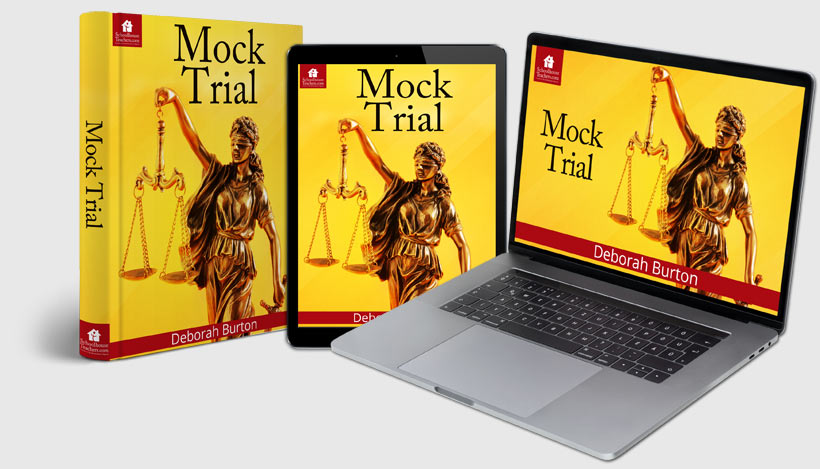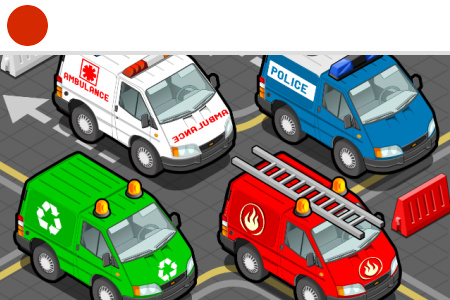More About Our Mock Trial Curriculum
Legal concepts are interesting to students! Through these lessons, students learn about the U.S. legal system through different cases, information on the court system, and more. This mock trial course ends with a mock trial allowing students to actively engage with the material.
The vision for this mock trial class is that students’ knowledge of God and His world will grow through study of the legal system. This course strengthens comprehension, logic/critical thinking, persuasive argumentation, writing, research, and public speaking skills. This mock trial curriculum teaches important information about the judicial branch of our government, as well as honing skills every person needs.
The mock trial lessons in this course target students in the middle school grades as well as high schoolers. You can also try these lessons with gifted, or just motivated and curious, younger students! My philosophy is that interested and motivated middle school students are able to learn at an amazingly high level. In the local mock trial classes I teach, it is not unusual to have even younger students (my classes often start at fourth grade) able to understand and articulate legal concepts, such as liability, negligence, intent, and the elements of specific crimes or legal theories. I have been so pleased when students told me that they enjoyed the depth of the class—even having one fourth-grade student tell me, “I liked how you didn’t talk down to us!” Much of the material will be fresh and challenging for older students as well.
Students learn basic concepts about the American legal system that will be built upon in later lessons in this mock trial curriculum. Basic monthly layout:
- Week One: Legal Concept
- Week Two: Case Summary
- Week Three: Related Skill
- Week Four: Case Holding (Outcome and Reasoning)
The first week of each month’s lesson plans teach about a particular legal concept (for example, negligence).
The second week provides a fact summary related to the legal concept for students to read and begin to prepare for the mock trial in which they will participate, or to write a persuasive essay taking one side of the case (or preparing to debate that side).
The third week of this mock trial course continues with reading a fact pattern, writing persuasively, expanding vocabulary, working as a team, interviewing witnesses, creating a “hook,” considering ethical issues, applying Scripture and Biblical standards, thinking critically, and writing creatively.
The fourth week provides the findings if the case is real, or the legal precedents for a mock case, so that the teacher can go over the findings with the student(s) after the mock trial or with regard to the debate/paper. At any time, you may see the need to go back into previous lessons to review particular concepts.
How to Use These Lesson Plans
Ideally, your child will be part of a group, such as a class or a co-op. If you’re not a member of a co-op or class, go round up some family friends! If you are not able to round up a group, do not despair. Your student will still learn a great deal about our court system and be able to hone his/her skills of persuasion in a debate in your home or by writing an essay. The same material is mastered—just using a different method.
Groups or co-op that meet weekly throughout the year, can use these lesson plans weekly, take advantage of the two weeks to prepare for a monthly mock trial, debate, or paper. If you do not want to have a monthly mock trial, you can take the enrichment ideas and add them to the weekly lessons. Then, you may want to choose one monthly topic/concept to focus on and do a mock trial at the end of the year or semester (depending on the length of your class). If you choose to wait for one big mock trial at the end of the class, you still have plenty of work for students—each month they can still write or debate the issues in the fact summaries.
Monthly mock trial lesson plans alternate between trials and appeals. Appellate cases consist of two attorneys arguing before a panel of justices, while trial cases involve witnesses, evidence, and a jury. If you have a small number of students, they can still debate or write essays regarding the issues in the trial cases.
And finally, you may choose to print off the lesson plans to be read by your student, or you may take the material and teach the lesson yourself—either way will work.



































